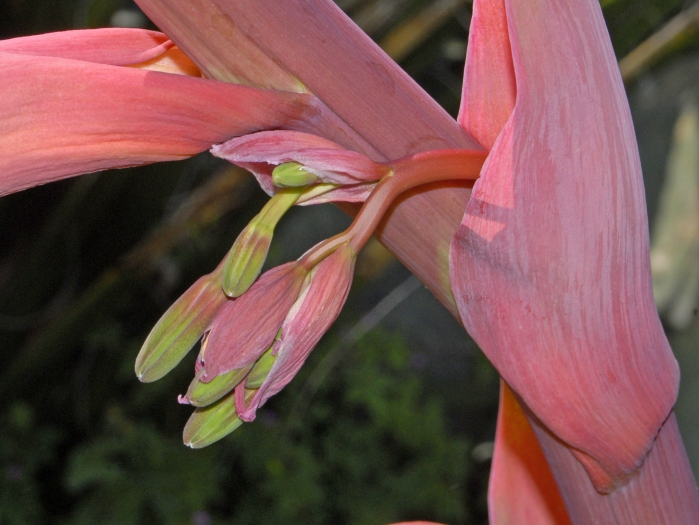Mexican Lily
(Beschorneria yuccoides)
Mexican Lily (Beschorneria yuccoides)
/
/

Hectonichus
CC BY-SA 3.0
Image By:
Hectonichus
Recorded By:
Copyright:
CC BY-SA 3.0
Copyright Notice:
Photo by: Hectonichus | License Type: CC BY-SA 3.0 | License URL: https://creativecommons.org/licenses/by-sa/3.0 | Uploader: Hectonichus | Publisher: Wikimedia Commons | Title: Asparagaceae_-_Beschorneria_yuccoides.JPG | Notes: |


























Estimated Native Range
Summary
Beschorneria yuccoides, commonly known as Mexican Lily, is an evergreen succulent native to the semi-arid highlands and pine-oak forests of Central and Northeastern Mexico. It typically forms a rosette of 20 to 35 linear, lanceolate, leathery leaves that are widened at their base, giving it a striking architectural appearance. The plant can reach up to 1.5 meters in height and width when in flower. The inflorescences are dramatic, with greenish to red bracts and tubular flowers that are 40 to 50 mm long, usually appearing in spring or early summer. The fruits are elongated to almost spherical, measuring 30–40 mm long and 15–25 mm wide. Mexican Lily is particularly noted for its bold foliage and dramatic flower spikes which can add an exotic touch to gardens.
Mexican Lily is valued for its drought tolerance and architectural form, making it a suitable choice for xeriscaping, rock gardens, and as a focal point in succulent collections. It thrives in warm, sheltered south- or west-facing locations in full sun, where temperatures do not fall below −5 °C (23 °F). For colder regions, it is best grown under glass to protect it from frost. It requires very low to low amounts of water and well-drained soil, making it a low-maintenance option for gardeners. While it is not commonly afflicted by pests or diseases, overwatering can lead to root rot.CC BY-SA 4.0
Mexican Lily is valued for its drought tolerance and architectural form, making it a suitable choice for xeriscaping, rock gardens, and as a focal point in succulent collections. It thrives in warm, sheltered south- or west-facing locations in full sun, where temperatures do not fall below −5 °C (23 °F). For colder regions, it is best grown under glass to protect it from frost. It requires very low to low amounts of water and well-drained soil, making it a low-maintenance option for gardeners. While it is not commonly afflicted by pests or diseases, overwatering can lead to root rot.CC BY-SA 4.0
Plant Description
- Plant Type: Succulent
- Height: 3-4 feet
- Width: 3-4 feet
- Growth Rate: Moderate
- Flower Color: Red
- Flowering Season: Spring, Summer
- Leaf Retention: Evergreen
Growth Requirements
- Sun: Full Sun
- Water: Very Low, Low
- Drainage: Medium, Fast
Common Uses
Bird Garden, Border Plant, Drought Tolerant, Fire Resistant, Groundcover, Hummingbird Garden, Low Maintenance, Potted Plant, Rock Garden, Salt Tolerant, Showy Flowers, Street Planting
Natural Habitat
Semi-arid highlands and pine-oak forests of Central and Northeastern Mexico
Other Names
Common Names:
Scientific Names: , Beschorneria yuccoides, Beschorneria bracteata,
GBIF Accepted Name: Beschorneria yuccoides K.Koch